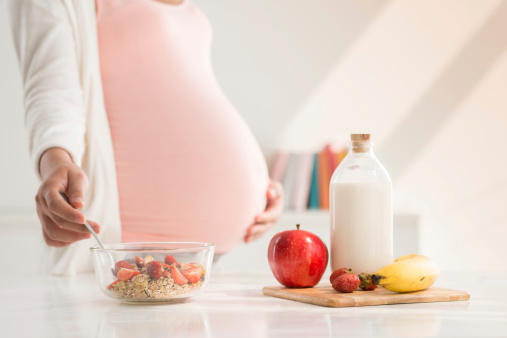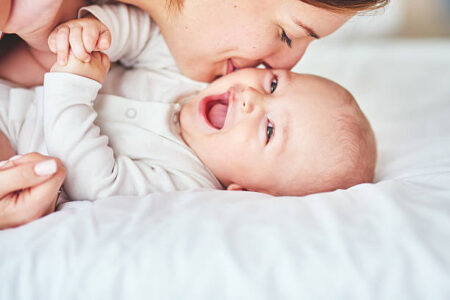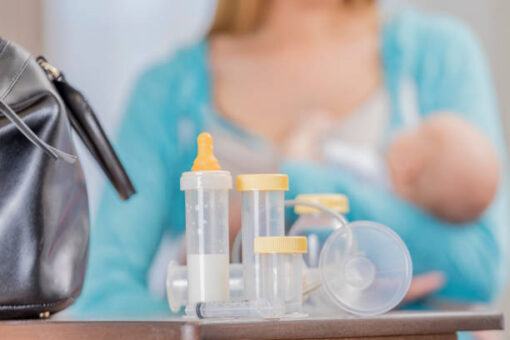Pregnancy is a crucial time in a woman’s life, and a healthy diet is essential for the well-being of both the mother and the growing foetus. However, it is equally important to be aware of the foods to avoid during pregnancy to prevent potential health risks for both the mother and the baby. In this post, we will discuss the top foods to avoid during pregnancy based on expert advice and scientific research.
Raw or undercooked meat
Raw or undercooked meat, including beef, poultry, and pork, should be avoided during pregnancy. These meats may contain harmful bacteria, such as Salmonella and E. coli, that can cause food poisoning and potentially harm the developing foetus. According to the NHS, all meat, including poultry and game, should be cooked thoroughly until there is no pink or blood visible. It is also essential to avoid processed meat, such as hot dogs and deli meats, which may contain harmful preservatives and additives.
Fish with high levels of mercury
Fish is an excellent source of protein and omega-3 fatty acids, but some types of fish contain high levels of mercury, which can be harmful to the developing nervous system of the foetus. According to the University of California, Davis, pregnant women should avoid eating shark, swordfish, king mackerel, and tilefish, which are known to have high levels of mercury. Instead, they should opt for low-mercury fish such as salmon, trout, and anchovies, which are rich in omega-3s and safe to consume in moderation.
Soft cheeses
Soft cheeses, such as brie, camembert, and feta, should be avoided during pregnancy due to the risk of Listeria infection. Listeria is a type of bacteria that can cause severe illness, miscarriage, or stillbirth in pregnant women. According to Tommy’s, a UK-based charity that funds research into pregnancy complications, pregnant women should avoid all types of soft and mould-ripened cheeses, including blue cheese and goat cheese.
Raw or undercooked eggs
Raw or undercooked eggs should be avoided during pregnancy due to the risk of Salmonella infection. This means avoiding foods that contain raw or partially cooked eggs, such as homemade mayonnaise, hollandaise sauce, and certain types of desserts. According to Healthline, pregnant women should also avoid foods that may contain raw eggs, such as Caesar salad dressing, raw cookie dough, and cake batter.
Caffeine
Caffeine is a stimulant that is found in coffee, tea, chocolate, and some sodas. While moderate caffeine consumption is generally safe during pregnancy, high levels of caffeine may increase the risk of miscarriage and low birth weight. According to the NHS, pregnant women should limit their caffeine intake to no more than 200mg per day, which is equivalent to one cup of coffee or two cups of tea.
Alcohol
Alcohol should be avoided entirely during pregnancy, as it can cause a range of foetal alcohol spectrum disorders (FASDs) that can affect the baby’s growth and development. There is no safe level of alcohol consumption during pregnancy, so it is best to avoid it entirely.
Artificial sweeteners
Artificial sweeteners, such as saccharin and aspartame, are commonly used to sweeten drinks and foods. While some studies suggest that artificial sweeteners are safe during pregnancy, others indicate that they may increase the risk of preterm delivery. It is best to limit or avoid artificial sweeteners altogether during pregnancy to be on the safe side.
Highly processed foods
Highly processed foods, such as chips, cookies, and fast food, should be avoided during pregnancy as they are typically high in calories, sugar, and unhealthy fats. These foods provide little nutritional value and may contribute to excessive weight gain, which can increase the risk of gestational diabetes and other complications. Instead, pregnant women should opt for whole, nutrient-dense foods such as fruits, vegetables, whole grains, and lean proteins.
Unpasteurized dairy products
Unpasteurized dairy products, such as raw milk and certain types of cheese, should be avoided during pregnancy due to the risk of bacterial infections. These products may contain harmful bacteria such as Listeria, E. coli, and Salmonella, which can cause severe illness or miscarriage. Pregnant women should always choose pasteurized dairy products, which have been heated to a high temperature to kill off harmful bacteria.
Raw sprouts
Raw sprouts, such as alfalfa, clover, and radish sprouts, should be avoided during pregnancy due to the risk of bacterial contamination. These sprouts may contain harmful bacteria such as E. coli and Salmonella, which can cause food poisoning and other health complications. Pregnant women should thoroughly cook sprouts before consuming them to reduce the risk of bacterial infection.
Conclusion
In conclusion, pregnancy is a time to pay extra attention to what you eat, as certain foods can pose a risk to the health of both the mother and the developing foetus. To ensure a healthy pregnancy, it is important to avoid raw or undercooked meats, fish with high levels of mercury, soft cheeses, raw or undercooked eggs, caffeine, alcohol, artificial sweeteners, highly processed foods, unpasteurized dairy products, and raw sprouts. Instead, pregnant women should choose whole, nutrient-dense foods that provide essential vitamins, minerals, and nutrients for the growing baby. As always, it is best to consult with a healthcare provider to ensure a healthy and safe pregnancy.
References:
- https://www.nhs.uk/pregnancy/keeping-well/foods-to-avoid/
- https://health.ucdavis.edu/blog/good-food/10-foods-to-eat-and-avoid-during-pregnancy/2019/09
- https://www.tommys.org/pregnancy-information/im-pregnant/nutrition-in-pregnancy/foods-avoid-pregnancy
- https://www.healthline.com/nutrition/11-foods-to-avoid-during-pregnancy#3.-Undercooked,-raw,-and-processed-meat





